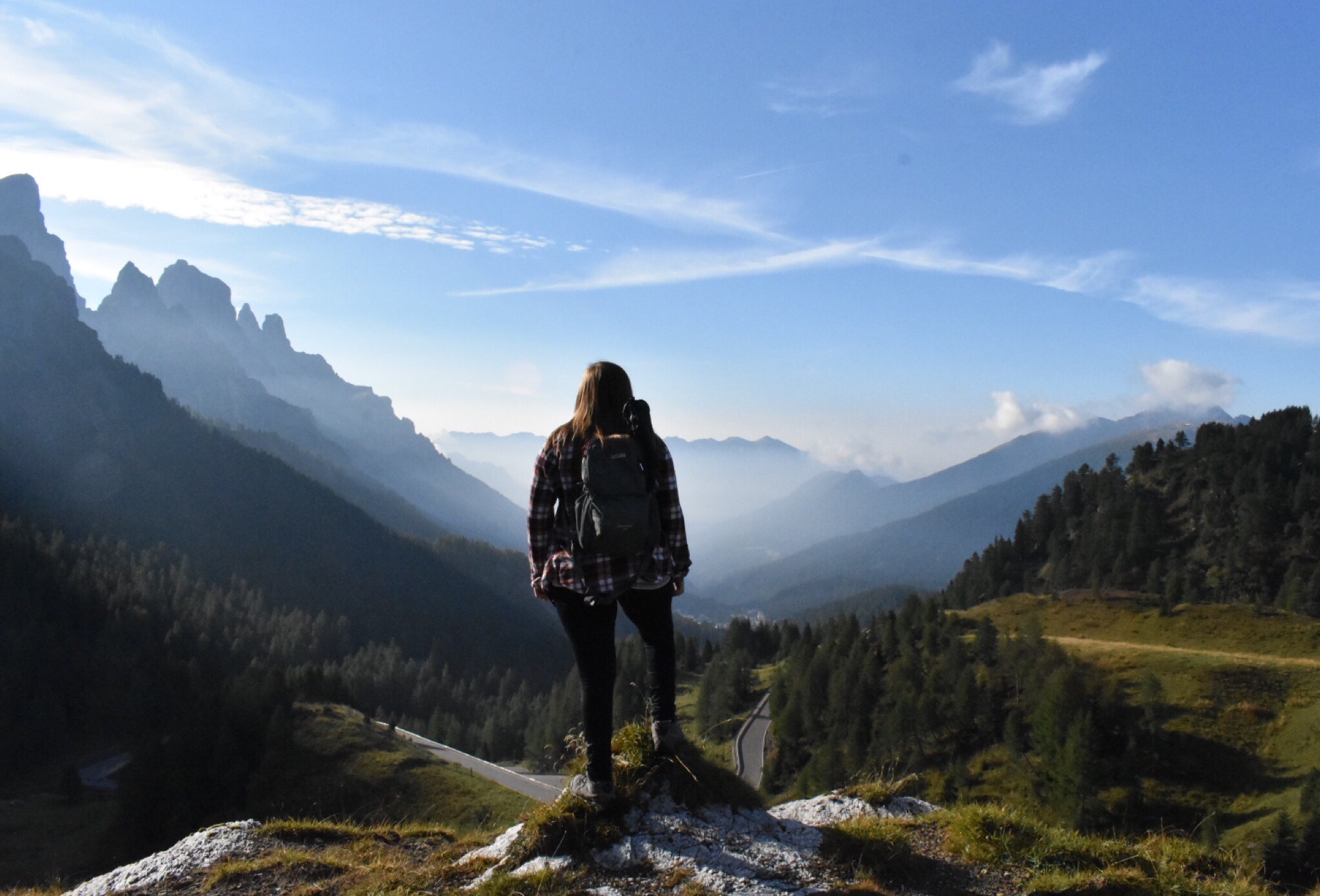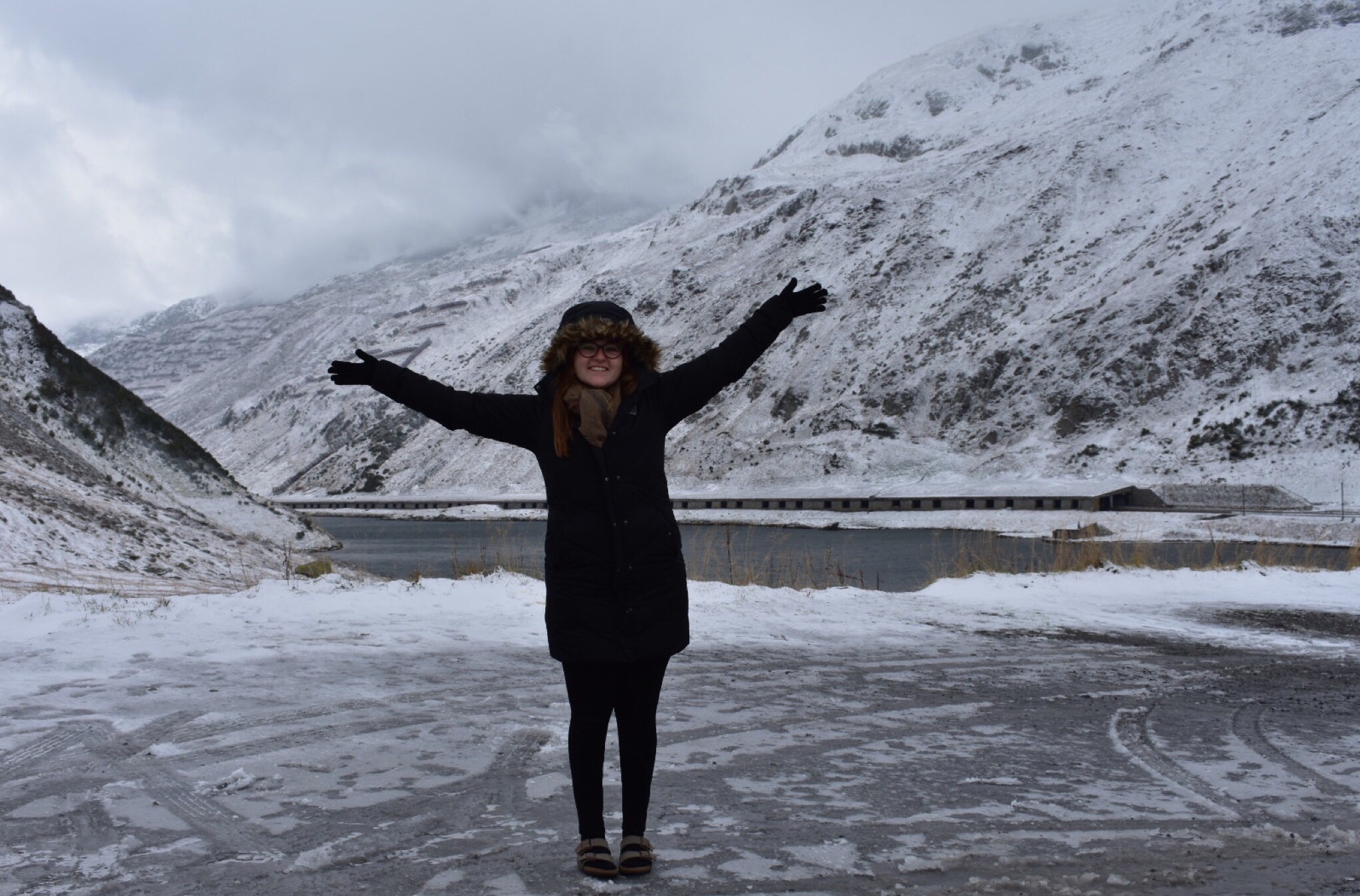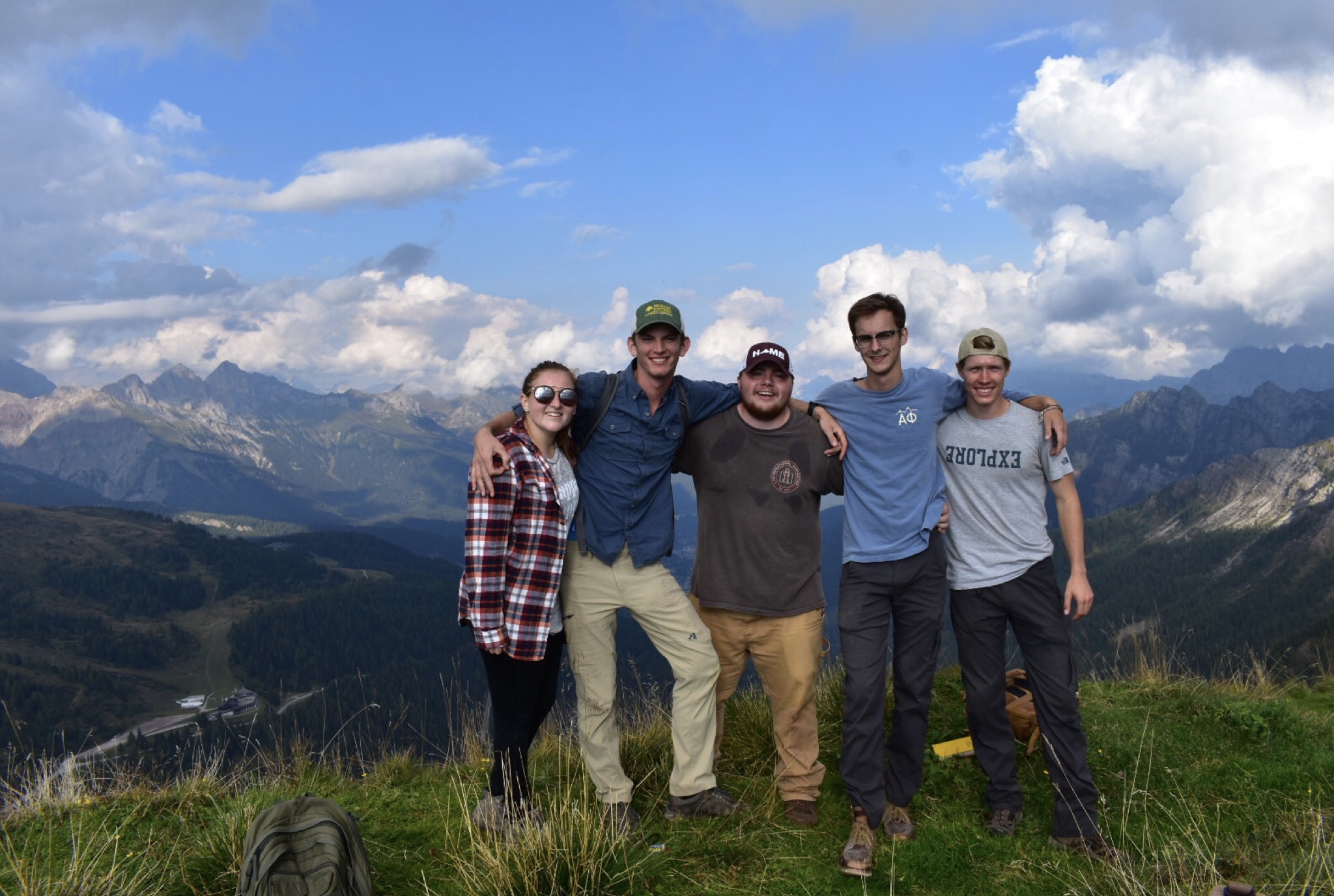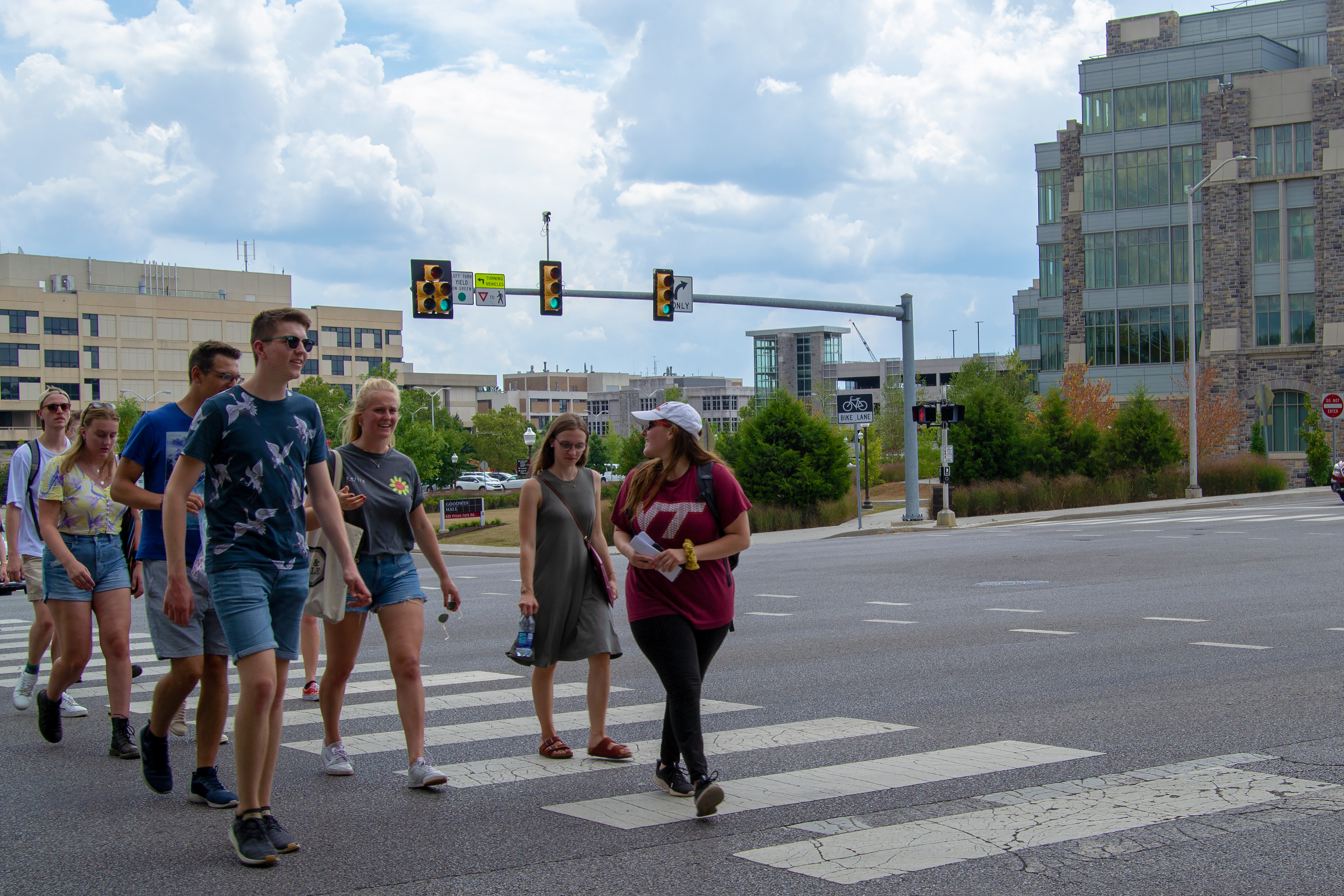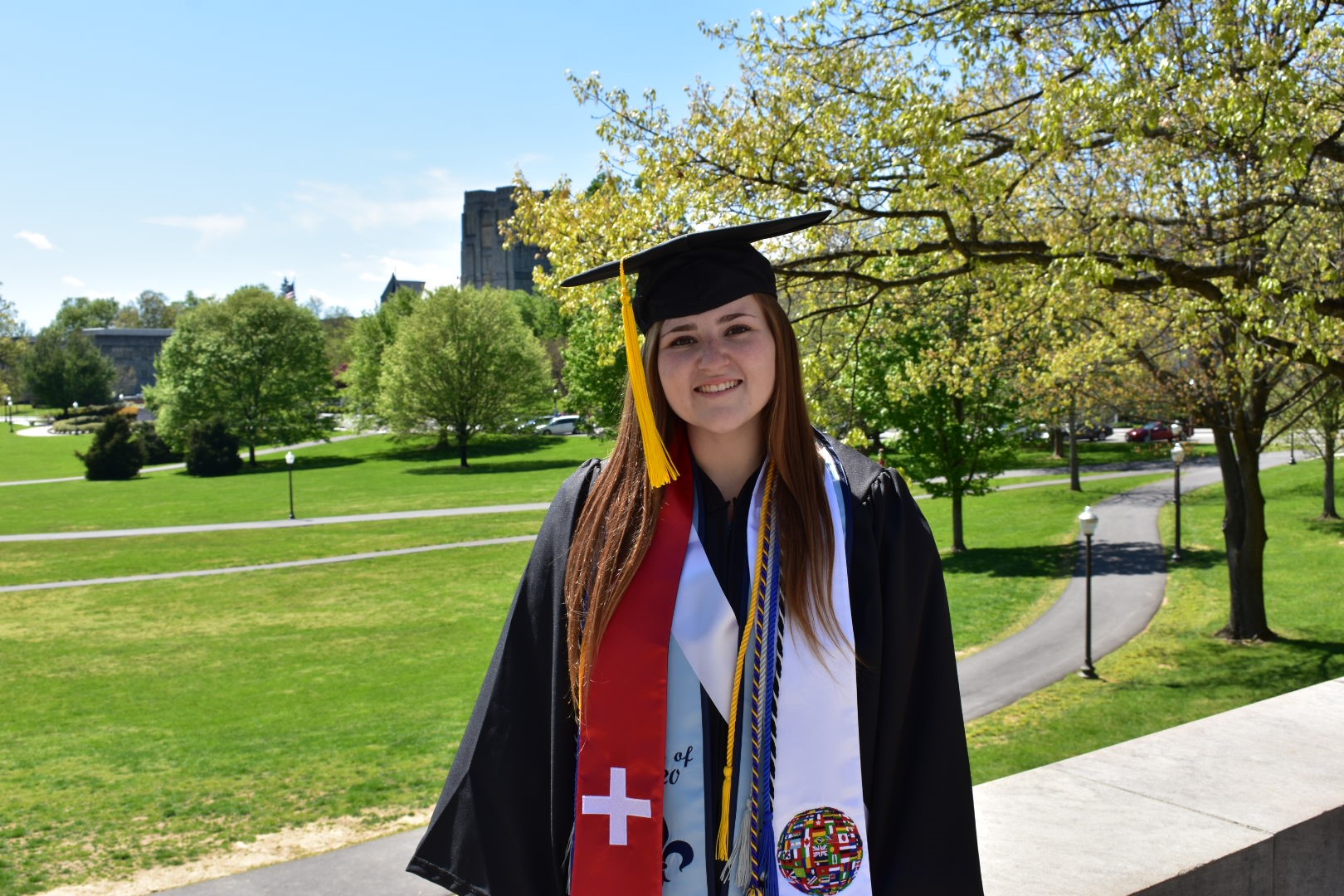Class of 2020: Studying abroad was the tip of the iceberg for senior Shelly Worek
Shelly Worek visited the Patagonia region of Argentina last winter.

As she stood nearly 9,600 feet above sea level at the top of Mount Eggishorn in the Bernese Alps, Shelly Worek had an epiphany. The senior from South Riding, Virginia, who will receive a degree in geosciences this month, stared at the impressive Aletsch Glacier and knew what she’d do after graduation.
“I just had this moment where I was looking at the most beautifully stunning, yet most depressing thing I had ever seen, and I realized that it’s what I wanted to do. I want to research glaciers and the cryosphere,” Worek said. Reports and models have shown the Aletsch Glacier, the largest in the Alps, shrinking by up to 50 meters in length each year and retreating significantly. “The research is so important today with what we’re seeing with climate change. This is where I feel like I can make a difference.”
The video below by Brian Scholten, a junior majoring in geosciences, gives an aerial view of the glacier.
Worek was in Switzerland in fall 2018 as a participant in the College of Science’s geosciences study abroad program based at Virginia Tech’s Steger Center for International Scholarship. A scholarship from the Global Education Office, part of Outreach and International Affairs, helped her with program costs.
The study abroad program incorporates field camp credits, a requirement for completing a degree in geology. Most students typically conduct the field camp during the summer before graduation. This study abroad option allows for it to take place during the semester, with the Alps serving as the setting.
The program’s excursions included visits to the Italian Dolomites, Cinque Terre, Andermatt, the Helvetic Alps, Saint-Gotthard Massif, the Verzasca Dam, and other academic and geological sites. One excursion to the Swiss Federal Institute of Technology in Zurich (ETH Zurich), a public research university in Switzerland, would prove pivotal in Worek’s post-graduation plans. In February, she was accepted to her first-choice graduate program in earth sciences at ETH Zurich.
“ETH is located in a great place and very close to the Alps, and I can do all sorts of research in the field studying glaciers. If it weren’t for the study abroad program, the school would not have been on my radar, and I never would’ve gotten interested in glaciology,” Worek said.
Worek sees her study abroad program as a defining moment in her overall Virginia Tech experience. “Everything that I got involved with afterward, whether it was being an orientation leader for the Global Education Office, a student ambassador for the College of Science, or taking on more leadership roles with campus organizations, my study abroad helped build that confidence and passion,” she said.
As an orientation leader, Worek welcomed international exchange students to Blacksburg. The Global Education Office’s Inbound Exchange Student Orientation Week is designed to accelerate immersion into the university and town culture. Most are in Blacksburg for just one semester or an academic year. Orientation leaders are the first faces to greet students at the airport. Throughout the week, campus tours, activities, and presentations introduce students to all things Virginia Tech.
“I absolutely love Virginia Tech, so it’s really fun to share that with others — especially international students who sometimes are traveling to the U.S. for the first time,” Worek said.
While plans for the fall are still clouded by the ongoing COVID-19 pandemic, Worek looks forward to returning to Switzerland to start the next chapter of her education and to reconnect with a few familiar faces. “There are several exchange students from Europe who will be back at their homes that I’m hoping to keep in touch with. If I’m ever feeling homesick or lonely, I know I can reach out to them.”
Written by Rommelyn Coffren and Aubrey Medina, a senior majoring in international relations and multimedia journalism





